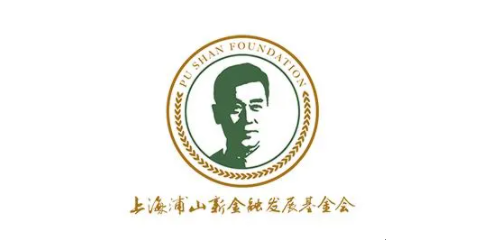
-
 86-21-63895588
86-21-63895588
-
 No.1, Lane 600, Nanchezhan Road, Huangpu District, Shanghai 200011
No.1, Lane 600, Nanchezhan Road, Huangpu District, Shanghai 200011
Release time:2021-02-23
Good news comes in the spring of the year of the ox! On February 18th 2021, with the publicity end of “Pushan Award for Excellent Papers on International Economics (2020)” (“Pushan Award” for short), Professor Shang-Jin Wei and Professor Chang Ma respectively won “2020 Pushan Award for Academic Research” and “2020 Pushan Young Scholars Award”. The two awards not only show the solid scientific research strength of the professor team at FISF, but also encourage young scholars to devote themselves to research and innovation in order to provide assistance in promoting FISF to sail far and smoothly.
Glory of Pushan Award
Hosted by Shanghai Pu Shan New Finance Development Foundation (Pu Shan Foundation for short) and initiated by China Society of World Economics, “Pushan Award” aims to commemorate Dr. Pu Shan, an esteemed predecessor in China’s world economic circle and to carry forward his noble qualities of wholehearted devotion.. “Pu Shan Award” is included by the Ministry of Education in the annual report item of science and technology statistics. It ranks significantly in other academic achievement awards like “Award of Sun Yefang Economic Science”. It is awarded every other year to excellent original academic research and policy research in world economy, open macroeconomics, international finance, international trades, economic development and growth as well as China’s foreign economic relations.

Shanghai Pu Shan New Finance Development Foundation

Shang-Jin Wei
Academic Visiting Professor at FISF
Professor of Finance and Economics at Columbia University
Professor Shang-Jin Wei’s paper “Made in China” to “Innovated in China”: Necessity, Prospect, and Challenges, won the “2020 Pu Shan Award for Academic Research”.
Author: Shang-Jin Wei, Zhuan Xie, and Xiaobo Zhang
Title: From “Made in China” to “Innovated in China”: Necessity, Prospect, and Challenges; Journal of Economic Perspectives—Volume 31, Number 1
Abstract: After more than three decades of high growth that was based on an exploration of its low-wage advantage and a relatively favorable demographic pattern in combination with market-oriented reforms and openness to the world economy, China is at a crossroad with a much higher wage and a shrinking work force. Future growth by necessity would have to depend more on its ability to generate productivity increase, and domestic innovation will be an important part of it. In this paper, we assess the likelihood that China can make the necessary transition. Using data on expenditure on research and development, and patent applications, receipts, and citations, we show that the Chinese economy has become increasingly innovative. In terms of drivers of innovation growth, we find that embracing expanded market opportunities in the world economy and responding to rising labor costs are two leading contributing factors. On the other hand, we find evidence of resource misallocation in the innovation area: while state-owned firms receive more subsidies, private firms exhibit more innovation results. Innovation can presumably progress even faster if resource misallocation can be tackled.

Chang Ma
Associate Professor of Finance (untenured) at FISF
The paper (Financial Stability, Growth and Macroprudential Policy) by Professor Chang Ma was awarded the prize of " 2020 Pu Shan Young Scholars Academic Paper Award". Pu Shan Award is awarded every other year. Only one person (Professor Chang Ma) won the prize of "2020 Pu Shan Young Scholars Academic Paper Award".
Author: Chang Ma
Title: Financial Stability, Growth and Macroprudential Policy, Journal of International Economics, 2020, Volume 122, 103259.
Abstract: This paper studies the effect of optimal macroprudential policy in a small open economy model where growth is endogenous. By introducing endogenous growth, this model is able to capture the persistent effect of financial crises on output, which is different from previous literature but consistent with the data. Furthermore, there is a new policy trade-off between cyclical and trend consumption growth. In a calibrated version of the baseline model, I find that the impact of the optimal macroprudential policy on growth and welfare is quantitatively small even if it significantly increases financial stability. I consider two extensions of the model in which the optimal macroprudential policy has a larger impact on growth and welfare: one in which macroprudential policy is jointly used with a growth subsidy that helps reduce the cost of financial crises; and another extension with a direct growth externality.
Good News of Paper Publication
At the new year start of 2021, the FISF academic research team welcomed a round of good news apart from the winning of “Pu Shan Awards”. From January 1st 2021 to February 22nd, Professor Xiaxin Wang, Wenbin Wu, Yifan Zhou, Shang-Jin Wei and Huasheng Gao succeeded in publishing their 5 papers in world-class journals, including Journal of Public Economics, Review of Economic Dynamics, Journal of Financial Economics, Journal of International Economics, Journal of Empirical Finance (listed in chronological order of publication).

Xiaxin Wang
Assistant Professor of Economics at FISF
Author: Daixin He, Langchuan Peng, and Xiaxin Wang
Title: Understanding the Elasticity of Taxable Income: A Tale of Two Approaches, Journal of Public Economics, 2021, Volume 197, 104375.
Abstract: This paper conducts the first formal comparison of two main approaches (tax reform versus bunching approach) to estimate the elasticity of taxable income (ETI), a central parameter in the public finance literature since Feldstein (1999). Using a novel panel of administrative tax data from China and exploiting China's progressive monthly wage income tax schedule and a tax reform in 2011, we document two key differences in the ETI estimates obtained from these two approaches. First, the tax reform ETI estimates increase concavely over time, while the bunching ETI estimates are much more stable. Second, the tax reform ETI estimates (around 4 in the long-run) are much larger than the bunching ETI (around 0.5), and the difference is statistically significant. To account for these facts, we develop a simple model where individuals in each period have some probability to permanently change hours of work without paying other costs but can temporarily adjust hours by paying additional costs. With stable wage rates, the two estimators should converge to the same underlying value. But with normal wage growth, the tax reform estimates converge to the true underlying parameter, whereas the bunching estimates can be far below the true figure.

Wenbin Wu
Associate Professor of Finance (untenured) at FISF
Author: Wenbin Wu
Title: Sales of durable goods and the real effects of monetary policy, Review of Economic Dynamics, 2021, forthcoming.
Abstract: Despite their prevalence in the microdata, sales (i.e., temporary price cuts) are often ignored by macroeconomists. If sales are taken into account, price rigidity is small in the data. Using the microdata underlying the Consumer Price Index (CPI), I first demonstrate that sales of durable goods have a substantial impact on the aggregate price index, and that the price index decreases gradually after these sales. To quantify the changes in the real effects of monetary policy due to sales, I propose a two-sector menu-cost model, in which sales are allowed. The model, which is able to match salient features of the microdata, predicts that the real effects of monetary policy will be significantly overestimated if sales of durable goods are not taken into consideration. Compared to my benchmark model, the model without sales and the Calvo model calibrated to the frequency of regular price changes both generate much greater real effects of monetary policy.

Yifan Zhou
Assistant Professor of Finance at FISF
Author: Travers Barclay Child, Nadia Massoud, Mario Schabus, and Yifan Zhou
Title: Surprise election for Trump connections, Journal of Financial Economics, 2021, Volume 140, Issue 2, Pages 676-697.
Abstract: We exploit Donald Trump’s nonpolitical background and surprise election victory to identify the value of sudden presidential ties among S&P 500 firms. In our setting firms did not choose to become politically connected, so we identify treatment effects comparatively free of selection bias prevalent in this literature. Firms with presidential ties enjoyed greater abnormal returns around the 2016 election. Since Trump’s inauguration, connected firms had better performance, received more government contracts, and were less subject to unfavorable regulatory actions. We rule out a number of confounding factors, including industry designation, sensitivity to Republican platforms, campaign finance, and lobbying expenditures.

Shang-Jin Wei
Academic Visiting Professor at FISF
Professor of Finance and Economics at Columbia University
Author: Jiandong Ju, Kang Shi, and Shang-Jin Wei
Title: Trade Reforms and Current Account Imbalances, Journal of International Economics, 2021, Volume 131, 103451.
Abstract: This paper studies the effects of trade liberalization on capital flows in a dynamic HeckscherOhlin model and makes four contributions. First, we identify an interest rate over-determination problem in such a model, and solve it with an endogenous discount factor. Second, we show that a trade liberalization in a developing country generally leads to a greater current account surplus, which is the exact opposite of a common but partial equilibrium intuition. Third, factor market reforms reinforce the effect of the trade liberalization on capital outflows. Finally, our calibrations suggest that China's accession to the WTO is likely an important factor driving the rise of current account surplus during 2001–2010.

Huasheng Gao
Professor of Finance
Deputy Dean of Faculty and Research at FISF
Author: Tao Chen, Huasheng Gao, and Yuxi Wang
Title: Tariff Uncertainty and Firm Innovation: Evidence from the U.S.-China Permanent Normal Trade Relation, Journal of Empirical Finance, 2021, Volume 62, Pages 12-27.
Abstract: We examine the effect of the tariff uncertainty associated with Chinese imports on U.S. firm innovation. Our test exploits the U.S. conferral of Permanent Normal Trade Relations (PNTR) on China—a policy that reduces the uncertainty of future tariff increases for Chinese goods. We find a significant increase in the number of patents and patent citations for U.S. firms affected by PNTR relative to other firms. This result is stronger for firms with more irreversible investments and for firms that experience a greater increase in Chinese goods following PNTR. Overall, our evidence is consistent with the view that lowering the tariff uncertainty of Chinese imports boosts the attractiveness for U.S. firms to make long-term irreversible investment (such as technological innovation) and thus induces U.S. firms to innovate more.
Wishing for a new outlook and setting out on a new journey in the new year. FISF has always stuck to the “Three World-class” goal of “world-class academic research and discipline construction, world-class teaching projects and high-end talent cultivation and world-class thinktank research and social influence”. It calls for a team of top teachers worldwide and strives to build the school into a truly internationalized world-class financial school that occupies the commanding point in global financial discipline with global influence and discursive power and can practically answer and solve major real-life problems in developing the financial industry, contributing to the innovation promotion and transformation upgrade of national and local governments as well as enterprises.